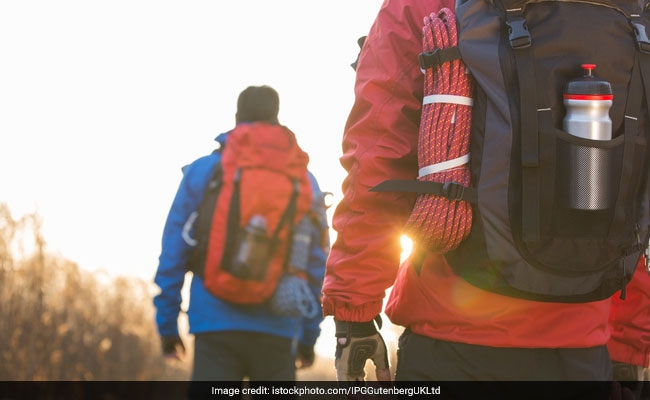New Delhi: The joy that travelling brings is unparalleled. Exploring different cities and states is an exciting and thrilling experience. Travelling is akin to unraveling a box of new experiences, the unboxing of which is accompanied by self-discovery, getting acquainted with new people and indulging in a host of new experiences. But travelers have had a history of being poor visitors and be it serene beaches or scenic mountain tops, more than often they dispose waste indiscriminately, compromising the beauty of a place. Today, no matter where you go, you will find heaps of garbage lying on the corner of the road. The state is such; plastic waste has reached to places situated at high altitudes.
Also Read: Travelling Green: Bengaluru Family Takes The Zero-Waste Route For Their Trip To The Northeast
An American essayist Ralph Waldo Emerson has rightly said, “Though we travel the world over to find the beautiful, we must carry it with us or we find it not.” For travelers to maintain cleanliness around the globe, it is vital for each one of us to travel without generating any kind of waste. A clean and green travel is necessary to maintain global cleanliness. Wondering how you can contribute? Here is a five-pointer guide to a zero waste trip.
1. Carry Your Own Water Bottle
Instead of buying a single use plastic water bottle at every hotel, restaurant or a place you stop at, carry your own steel water bottle. You can get the water bottle refilled at any restaurant, café or through water ATMs. If you think that carrying a bottle is a task, you are wrong. Every backpack comes with a bottle holder so you are sorted. If in case you are carrying any other kind of bag, you can surely make some room for a bottle.
Also Read: Goodbye Plastic, Hello Creativity: Five Easy Ways To Reuse Plastic Bottles
2. Refuse Single Use Disposable Plastic
The easiest way to avoid plastic and waste is to refuse. Refuse plastic straws, eating in use and throw plastic tableware and cutlery. For this, all you need to do is speak and ask. If you are eating out, you can request for alternatives like steel or reusable tableware. For desserts like ice-cream, you can eat ice cream in a cone instead of a plastic or paper cup.
Also Read: Eco-Friendly Alternatives To Plastic: This Bengaluru Duo Gives A Green Spin To Shopping And Eating
3. Leave Your Plate Clean
As per a government data, India generates up to 67 million tonnes of food waste annually, which if tackled can feed the whole of Bihar for a year. Be it on your way or where you stay, remember to not leave even a single grain on your plate. Either take food as per your requirement or finish whatever you have on your plate.
Also Read: Cook Smart, Eat Smarter: Five Easy Ways To Curb Food Wastage At Home
4. Use Technology To Your Benefit
Instead of printing tickets, itineraries and other documents, use your mobile or tablet to save all your documents. You can download your tickets via email pdf or opt for e-tickets. While checking in, all you need to do is show your ticket on your mobile. This way you can save a lot of paper from going to waste.
Tip: You can also opt for e-tickets while buying movie tickets.
5. Alternatives To Your Rescue
Just do a bit of research and you will get truckloads of alternatives to single use plastic products. To name a few, you can adopt for menstrual cups and cloth pads instead of regular sanitary napkins. As far as single use plastic cutlery is concerned, you can carry steel cutlery with you. A couple of spoons and forks won’t take much space.
Also Read: Do It Yourself: This Teenager Girl Will Teach You How To Make Your Own Eco-friendly Sanitary Pads
NDTV – Dettol Banega Swachh India campaign lends support to the Government of India’s Swachh Bharat Mission (SBM). Helmed by Campaign Ambassador Amitabh Bachchan, the campaign aims to spread awareness about hygiene and sanitation, the importance of building toilets and making India open defecation free (ODF) by October 2019, a target set by Prime Minister Narendra Modi, when he launched Swachh Bharat Abhiyan in 2014. Over the years, the campaign has widened its scope to cover issues like air pollution, waste management, plastic ban, manual scavenging and menstrual hygiene. The campaign has also focused extensively on marine pollution, clean Ganga Project and rejuvenation of Yamuna, two of India’s major river bodies.

































